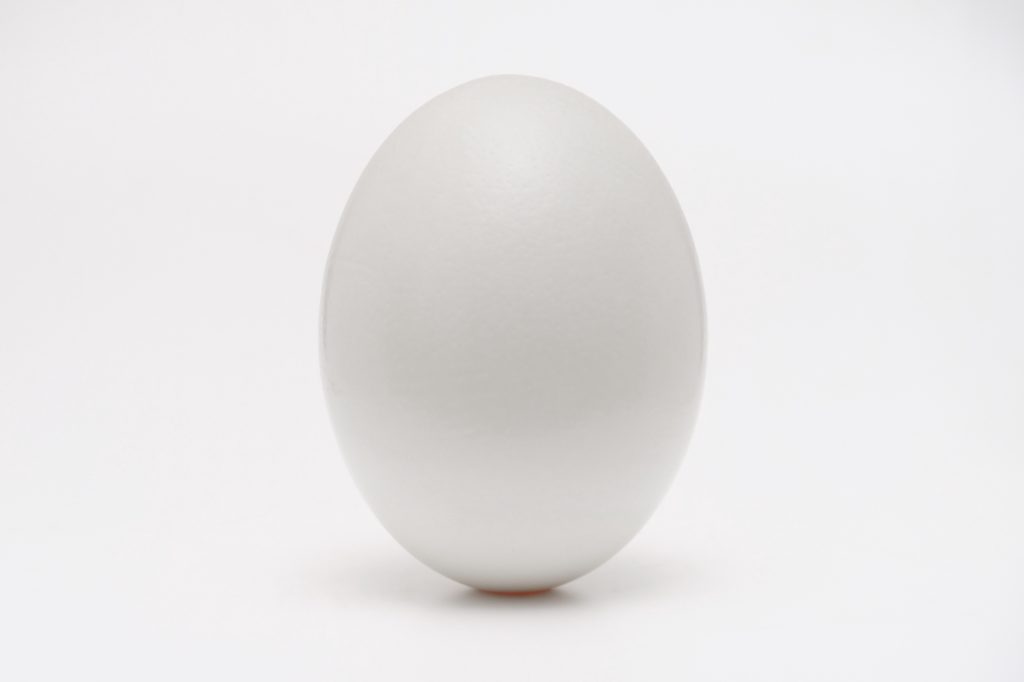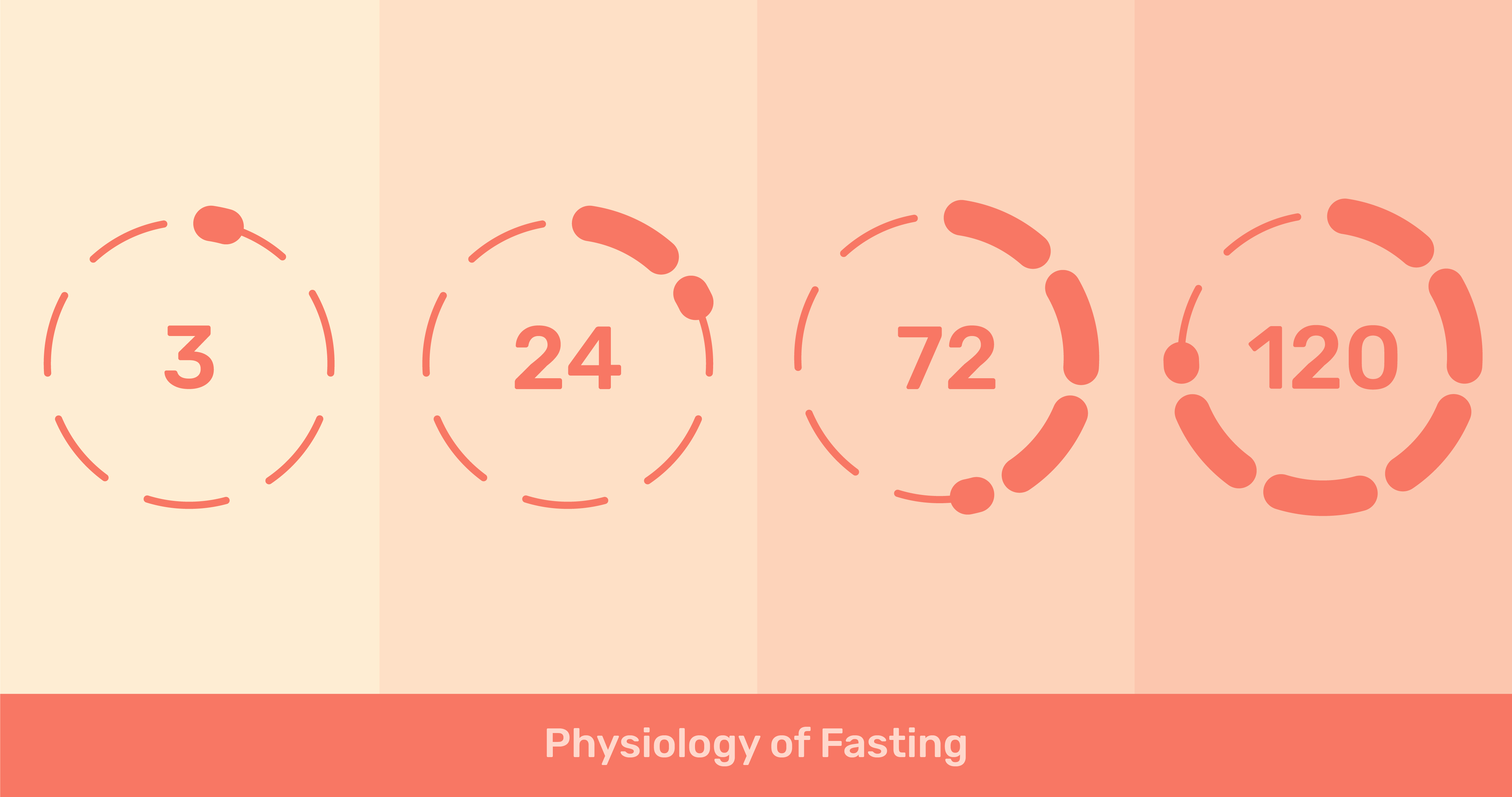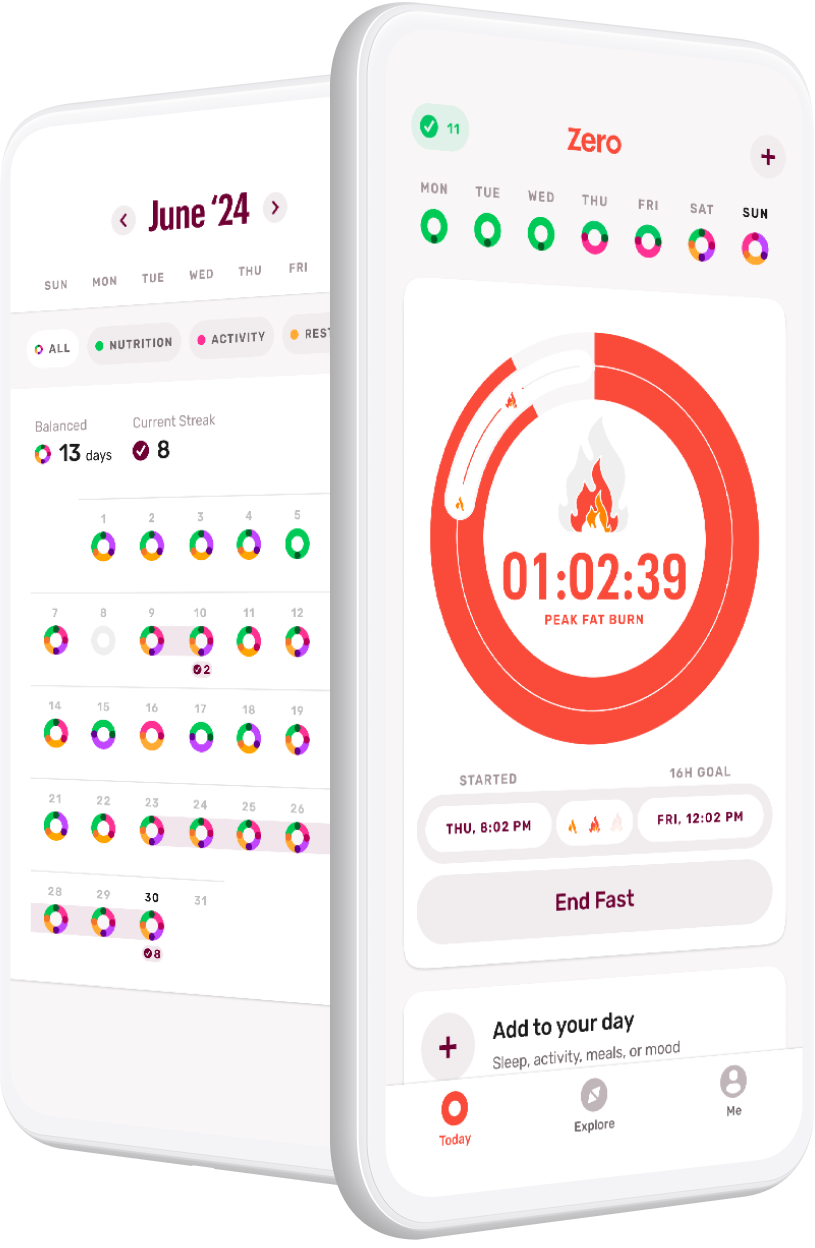If you’ve embarked upon one of the many varieties of fasts — where you take in little or no food for a stretch of time — at some point you’ll eventually need to break your fast and begin eating again. Experts say you shouldn’t let your hunger or cravings drive you, but rather go slowly and thoughtfully into what you eat first.
When to break your fast?
When you start eating again depends upon the fasting protocol you’ve taken on. If you’re doing time restricted feeding, many people choose to stop eating around 7 or 8pm, fast overnight, skip breakfast, and have their first meal around 11am or 12pm, at lunch essentially. Generally, you don’t want to break a fast at night since you’ll be using fewer calories as you head to bed.
Go slow
No matter the kind of fast you’ve done, be it time restricted feeding for some hours, or a water fast for a day or more, it’s most important that you ease back into eating so as not to overwhelm your digestion or undo some of the good effects you’ve achieved by fasting. A loaded cheeseburger might sound fantastic, but it probably won’t feel so good going down.
One expert recommends you halve the number of days you fasted and used that as a guide for reintroducing foods. So, if you fasted for four days, take two days to ease your way back into eating.

Consider starting with broths and liquids for the first meal, and possibly the first day, if you’ve been on a longer fast. The less sugar in these liquids, the better, as those can create bloating and digestive irritation. Once you introduce food, expect to gain back a certain amount of water weight due to adding back in some carbs and replenishing your glycogen stores. However, be sure to continue to drink lots of water as well. You might have become dehydrated while fasting, which is common if you don’t stay on top of your fluid intake.
Post-fasting is also not a great time to experiment with new foods or recipes you haven’t tried before. Your body might not be prepared to properly digest these new foods, so it is best to first reintroduce something that is familiar to you to ease the transition. Wait until you are back into a normal eating routine to start experimenting with new foods.
Gradually introduce foods
When you start eating again, choose foods that are low on the glycemic index because too many carbs, especially carbohydrates that are easily digested and quickly absorbed, can spike insulin levels. One fasting expert recommends eggs, avocado, nuts and spinach as good examples to introduce first.
Another nutrition expert recommends that you start with soft-cooked foods like vegetables, since these are easier to digest. Slowly move up to foods with whole grains and high fiber because too much of these after not eating can lead to constipation. Add in raw foods last, as these can irritate your digestive tract.
When transitioning off a prolonged fast, it may be better to start with small servings and have no more than 500 calories per meal. This slow transition will help your body adapt to having higher amounts of nutrients again. In rare cases, people who have gone a long time without eating — usually more than 10 days — or who are malnourished prior to starting a fast can be at higher risk of a dangerous condition known as “refeeding syndrome.” This is a potentially fatal syndrome that can occur due to shifts in fluids and electrolytes after macronutrients are too rapidly reintroduced into the body. As long as you are in good health going into your fast, transition slowly back to your normal diet and are under the care of a health professional before, during, and after fasting, this is unlikely to occur.
If you start craving sugar again after a fast and think you’ll quell your sweet tooth with fruit, go carefully, particularly if you are fasting for weight loss or to balance your blood sugar. Even too much natural fructose can negatively impact insulin sensitivity. If you must eat fruit, choose those that are lower on the glycemic index and higher in fiber, such as berries, apples, or pears.
To help overeating, have a plan in place for breaking your fast. For prolonged fasts, map out your meals for the week after your fast. Knowing what and how much you will be eating the days following your fast will help reduce your risk of binge eating and choosing poor quality foods. Meal planning apps or meal prep kits are great tools to help with this.
Other considerations

A small portion of protein at your first meal such as eggs or chicken can be a good option, as they provide essential amino acids to help rebuild and repair the body. When you fast, growth pathways such as IGF-1 and mTOR are suppressed. Amino acids stimulate both of these, so once you reintroduce amino acids from protein sources post fast, you then activate this beneficial growth period.
What you eat isn’t the only consideration after fasting; another expert recommends you chew your food very thoroughly, as many as 30 times per bite, to make sure your food is easily digested.
If you’re anxious about digestion, consider adding in a probiotic, either in the form of a supplement or by eating foods that have naturally occurring probiotics in them, such as sauerkraut, miso, and, when you feel ready for dairy, yogurt.
Beyond just breaking your fast, also consider your overall eating habits. If fasting is your only answer to getting healthier, but you don’t eat well the rest of the time, fasting is unlikely to give you the results you’re seeking.
- The Complete Guide to Fat Burning - April 30, 2024
- Zero Live #4: 3 Ways to Boost Fat Burning - March 28, 2024
- Zero Live #3: Nutrition, Fast Breakers, and Fasting - March 11, 2024






What’s a good podcast for generally eating well and fasting as I am doing keto
I don’t know about a podcast, but Dr. Mindy on YouTube is very good. She has videos for every type of fast and keto variations you could imagine.
Mark bell’s powercast!!!
Is coffee ok while fasting??
Yes, one cup of black coffee.
Is green tea ok while fasting?
Yes, if it does not have sugar added
Yes
Yes. Just make sure there’s nothing in it.
I break my fast with a smoothie everyday. The smoothie consist of 2 celery sticks, two cups of kale, two cups of spinach, 1 green apple, use to put one banana but I stopped that due to sugar and carbs, 3oz of green machine naked, 3oz of sugar free cranberry juice. I want to know if that’s bad because of the natural sugar or is it ok to continue.
Hi just started my fast and learned afterwards that you have to prepare for a fast will me not being prepared hurt my fast
Does Vodka and sparking water break a fast? Asking for a friend.. 😐
What about if you are vegan and don’t eat animal protein?
Try chia seed pudding.
I started IF (mostly 16:8, sometime longer) a few weeks ago and have been feeling great. The last two days I’ve felt really tired/run down about 30-45 minutes after breaking my fast. Any suggestions on how to avoid?
Read up on various supplements to take to curb those “run down” feelings. L-Tyrosine is a good one. It will increase dopamine levels (which is known as a “feel good” chemical your body creates) as well as Adrenaline.
You will have to determine how your body handles certain supplements during your fasting window. You might have to take them during your eating window to avoid queasy/nausea feelings.
Hope this helps! Best of luck on adding that pep back in your step 🙂
Will nicorete mints break my fast ??
Recently quit smoking.
I use to drink homemade water kefir. I have two questions about it: If I drink it while fasting, does it break my fast? And in case it does break it, can I drink kefir as a first “meal”? Thanks!